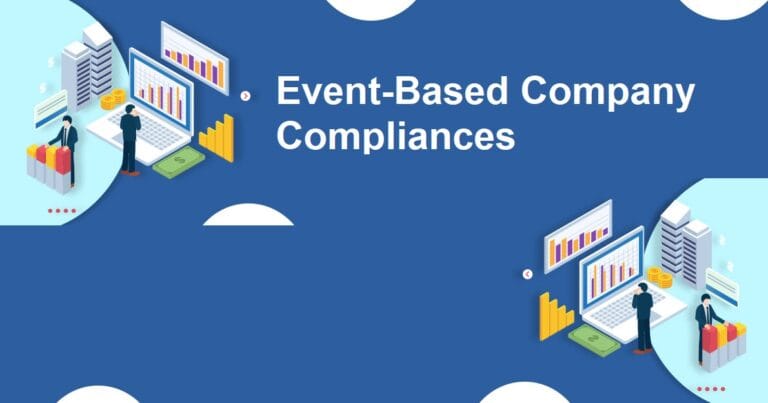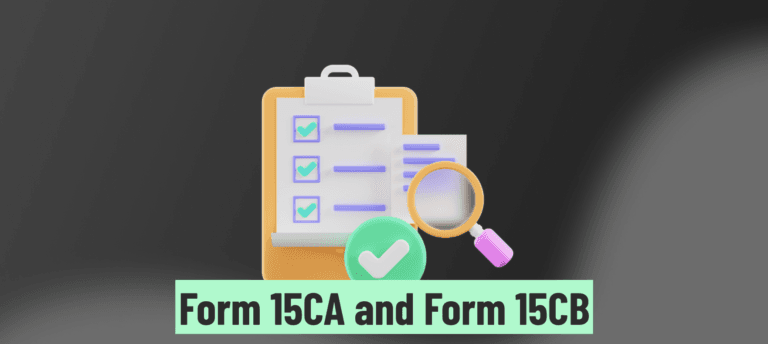A Section 8 Company, also known as a Section 8 of the Companies Act, 2013, is a type of nonprofit organization in India. Here’s an overview of what a Section 8 Company entails:
Characteristics of a Section 8 Company
- Nonprofit Nature: Section 8 Companies are established for promoting commerce, art, science, sports, education, research, social welfare, religion, charity, protection of the environment, or any other useful object, provided that the profits, if any, or other income is applied for promoting only the objects of the company and no dividend is paid to its members.
- Limited Liability: Members of a Section 8 Company have limited liability, meaning their personal assets are protected in case of company debts or liabilities.
- No Minimum Capital Requirement: Unlike other types of companies, Section 8 Companies do not require a minimum paid-up capital to incorporate.
- Government Approval: Prior approval from the Registrar of Companies (ROC) is required for incorporation. The application must demonstrate that the proposed company intends to promote charitable objectives.
- Tax Benefits: Section 8 Companies enjoy tax exemptions under the Income Tax Act, 1961, on income applied towards charitable purposes.
- No Profit Distribution: Any profits or income generated by the Section 8 Company must be used solely for promoting its charitable objectives. No dividends are paid to its members.
- Board Structure: Managed by a board of directors appointed by the members. The directors oversee the operations and ensure compliance with legal and regulatory requirements.
- Audit Requirements: Section 8 Companies are required to maintain proper accounts and have them audited annually by a qualified auditor.
Process of Incorporating a Section 8 Company
- Name Approval: Choose a unique name for the company and obtain approval from the Registrar of Companies (ROC).
- Memorandum and Articles: Prepare the Memorandum of Association (MOA) and Articles of Association (AOA), clearly defining the charitable objects and operational guidelines.
- License Application: Apply for a license under Section 8 of the Companies Act, 2013, with the ROC. Submit the prescribed forms along with necessary documents, including MOA, AOA, and declaration by directors.
- Director Identification Number (DIN): Obtain DIN for the proposed director(s) through an online application.
- Digital Signature Certificate (DSC): Obtain DSC for the proposed director(s) to electronically sign documents.
- Incorporation Documents: File the incorporation documents, license application, and forms prescribed under the Companies Act, 2013, with the ROC.
- License Approval: Upon verification of documents and satisfaction of requirements, the ROC grants a license to operate as a Section 8 Company.
- Certificate of Incorporation: Once the license is granted, the ROC issues a Certificate of Incorporation, officially establishing the Section 8 Company.
- Post-Incorporation Formalities: Complete post-incorporation formalities such as opening a bank account, issuing share certificates (if applicable), and complying with audit and tax requirements.
Advantages of a Section 8 Company
- Legal Recognition: Recognized as a legal entity for promoting charitable purposes.
- Tax Exemptions: Eligible for tax benefits under Section 12A and Section 80G of the Income Tax Act, 1961.
- Limited Liability: Members are not personally liable for the company’s debts or liabilities beyond their shareholding.
- Public Trust: Enhances credibility and trust among donors, beneficiaries, and stakeholders.
Disadvantages of a Section 8 Company
- Stringent Regulatory Compliance: Subject to regulatory oversight and compliance requirements under the Companies Act, 2013.
- Limited Profit Utilization: Profits generated must be solely applied towards charitable purposes, restricting financial flexibility.
- Public Scrutiny: Charitable activities and financial operations may be subject to public scrutiny and regulatory audits.
A Section 8 Company is a suitable option for individuals or organizations looking to promote charitable activities while enjoying limited liability and tax benefits. It plays a crucial role in contributing to social welfare, education, healthcare, environmental protection, and other charitable causes. However, prospective founders should carefully consider the regulatory requirements, operational obligations, and financial restrictions associated with this legal structure before incorporating a Section 8 Company. Proper planning, compliance with legal norms, and a clear understanding of charitable objectives are essential for the successful establishment and operation of such organizations.
At Ujjwal Gupta & Co
We, at Ujjwal Gupta & Co, are dedicated to delivering personalized, high-quality solutions tailored to meet your financial and business needs. With our team of professionals and a client-first approach, we ensure that every challenge is met with expert guidance and strategic insight.
We are dedicated to ensuring your business’s success by providing best service practice available in the industry and that too at a cost effective pricing. Our team of experts is excited to work with you and provide the support you need to thrive in the Indian business landscape.
Our only motive is to create Value for Our Clients and accordingly, have a Client Value System at our Office.
So, let us help you navigate the complexities of finance and compliance, empowering you to focus on what matters most — growing your business. Get in touch today, and take the first step towards financial peace of mind.
A Section 8 Company is a company registered under Section 8 of the Companies Act, 2013, with the objective to promote charitable causes like commerce, art, science, sports, education, research, social welfare, religion, charity, or environmental protection. Unlike other companies, profits cannot be distributed as dividends and must be used to further the objectives of the company.
Key features include:
- No profit distribution: The company must use its income and profits solely for promoting its charitable objectives.
- Limited liability: The liability of its members is limited.
- Tax exemptions: A Section 8 company can apply for various tax exemptions under Income Tax Act provisions.
- Perpetual existence: It continues to exist even if its members change.
- No minimum capital requirement: There is no specific minimum paid-up capital requirement to start a Section 8 company.
The key differences are:
- Section 8 Company is governed by the Companies Act, 2013, while Trusts are governed by Indian Trusts Act, 1882, and Societies by Societies Registration Act, 1860.
- Section 8 Companies offer higher credibility as they are regulated by the Ministry of Corporate Affairs (MCA), require audits, and follow stricter compliance.
- Unlike trusts and societies, a Section 8 Company can have perpetual succession and a formal structure like a private limited company.
The registration process involves:
- Obtain Digital Signature Certificate (DSC) and Director Identification Number (DIN) for the directors.
- Apply for name approval through the SPICe+ form on the MCA portal.
- File the Memorandum of Association (MOA) and Articles of Association (AOA) detailing the objectives of the company.
- File Form INC-12 with the Registrar of Companies (RoC) for obtaining a license to operate as a Section 8 Company.
- Once the license is granted, the Certificate of Incorporation will be issued.
No, a Section 8 Company is not allowed to pay dividends to its members. All profits or income must be used solely to promote the company’s non-profit objectives such as charity, education, or social welfare.
A Section 8 Company is subject to the following compliance requirements:
- Filing of annual returns and financial statements with the Registrar of Companies (RoC).
- Statutory audit of the company’s financial statements.
- Income tax filings, including applications for tax exemptions.
- Conducting Annual General Meetings (AGM) and maintaining board meeting records.
- Filing of Form 10B for obtaining tax exemption under Section 12A and audit reports as per the Income Tax Act.
A Section 8 Company is eligible for several tax exemptions, including:
- Section 12A: Provides tax exemptions on surplus income used for charitable purposes.
- Section 80G: Allows donors to claim deductions on donations made to the Section 8 Company.
- The company can also seek exemptions on GST and other indirect taxes, depending on its activities.
A Section 8 Company can be converted into another form of company, such as a Private Limited or Public Limited Company, but it requires prior approval from the Central Government. The company must also adhere to conditions regarding the treatment of its property and assets during the conversion process.
Governance is typically similar to a Private or Public Limited Company:
- A Section 8 Company must have a minimum of two directors (in case of a private company) or three directors (in case of a public company).
- Directors manage the day-to-day affairs of the company.
- The company must hold board meetings regularly and comply with statutory requirements.
- An Annual General Meeting (AGM) must be held every year to present financial statements and discuss the company’s operations.
Upon dissolution, any remaining assets cannot be distributed among the members. Instead, the assets must be transferred to another Section 8 Company with similar objectives or given to the government as per the directions of the National Company Law Tribunal (NCLT).
Why Choose UGC?

Client Centric Approach
Client is the key driver of our service offerings. Our approach to service offerings is based on a client centric and customized approach. Our specialized teams are a mix of technical and industry experience in order to serve clientele for their specific needs.

Team Work
We have built high performing teams supported by strong work ethic. Our team is a mix of experts, professionals and support staff from technical and varied academic, social and ethnic backgrounds. We believe diversification plays a vital role in motivating the team.

Quick Turnaround
We always endeavour for a quick turnaround time to serve our clientele. We are supported by an experienced and client focussed support teams to offer timely services to our clientele. In case of any business exigencies and time sensitive service requirements, you can always count on us.

Open Communications
We believe that open communication is the core principle in order to demonstrate trust, build long lasting and valuable relationships with clientele. We are committed to ensuring transparency in communication, service offerings and delivery. We provide professional services to our clients.

Client Value System
We value for the Client time and thus, we offer services that are value for money. Quality professional services are provided to our clients, so that they are able to achieve their desired results. We are a quality trademark in the industry and thus, our clients count on us always.

Quality in Delivering Work
Our service offerings are driven by quality and reviews at every level. We strive to provide a qualitative and value-added delivery to our clientele. At all times, we endeavour to provide exceptional client service by meeting client expectations and driving client satisfaction.



























